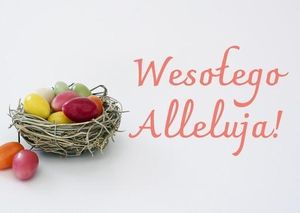As Easter approaches, a curious debate has erupted over the naming of chocolate Easter bunnies sold by discount supermarkets like Lidl and Aldi. The term "Sitzhase," or "sitting bunny," has raised eyebrows and sparked concerns among some consumers who fear it signifies a broader trend of diminishing Christian traditions in favor of more secular terminology.
The controversy began when a Lidl flyer released in the last week of March 2025 included a product labeled as "Favorina kleiner Sitzhase." This caught the attention of social media users, leading to a flurry of comments and posts questioning whether the term "Easter bunny" was being phased out. One Facebook user expressed their concern by stating, "Just think about it: all Christian holidays are supposed to be abolished in favor of others. The Easter bunny is now called Sitzhase."
Such sentiments have been echoed widely across social media platforms, with many users voicing their apprehensions that the shift in terminology reflects a deliberate strategy to erase Christian cultural references. However, a closer examination reveals that the term "Sitzhase" is not a new invention but rather a longstanding product name used to describe chocolate bunnies that are designed in a sitting position.
In fact, these sitting bunnies have been sold for years to distinguish them from their standing counterparts. The name "Sitzhase" has been part of the product line for various manufacturers, not just Lidl. Aldi is also known to offer similar products under the same name, further indicating that this is not an isolated marketing decision.
The discussion has drawn parallels to previous debates surrounding the terminology used for Christmas markets, where concerns were raised about replacing traditional names with more neutral terms. This time, however, the focus is on Easter and the implications of calling a chocolate bunny a "Sitzhase." Critics argue that such changes could dilute the significance of Easter, while proponents suggest that it merely reflects the versatility of the German language, which boasts a plethora of terms for similar items.
Indeed, the German language is rich with synonyms and often employs multiple terms for the same concept. For instance, alongside the "Sitzhase," Favorina also markets a traditional "Schokoladen-Osterhase" (chocolate Easter bunny), demonstrating that both terms coexist in the market. This diversity in naming is a testament to the language's complexity rather than an attempt to undermine cultural traditions.
Moreover, the outrage surrounding the term "Sitzhase" appears to overlook the fact that many chocolate bunny products have been marketed with playful names for years. Lindt's well-known "Goldhase" (gold bunny) has been a staple in Easter confectionery for a long time, proving that the chocolate industry has long embraced creativity in product naming.
Despite the uproar, it seems that the term "Sitzhase" is simply a descriptive label rather than a politically charged term aimed at erasing Easter from the cultural lexicon. As one user pointed out, "No one is banning Easter here; it’s just a name."
As the Easter holiday approaches, consumers are reminded that the choice between traditional chocolate bunnies and their sitting counterparts is still available. The real concern for many this season may be the rising prices of chocolate products, prompting some to consider making their own Easter treats at home instead. With the cost of chocolate products at retailers like Aldi and Lidl becoming a hot topic, families are encouraged to explore new and traditional Easter recipes.
In summary, while the debate over the term "Sitzhase" may seem trivial to some, it highlights the cultural sensitivity surrounding language and tradition in contemporary society. As discussions continue, it is clear that the chocolate Easter bunny, whether called "Sitzhase" or "Schokoladen-Osterhase," remains a beloved symbol of the holiday, inviting both nostalgia and new traditions into homes across the country.





